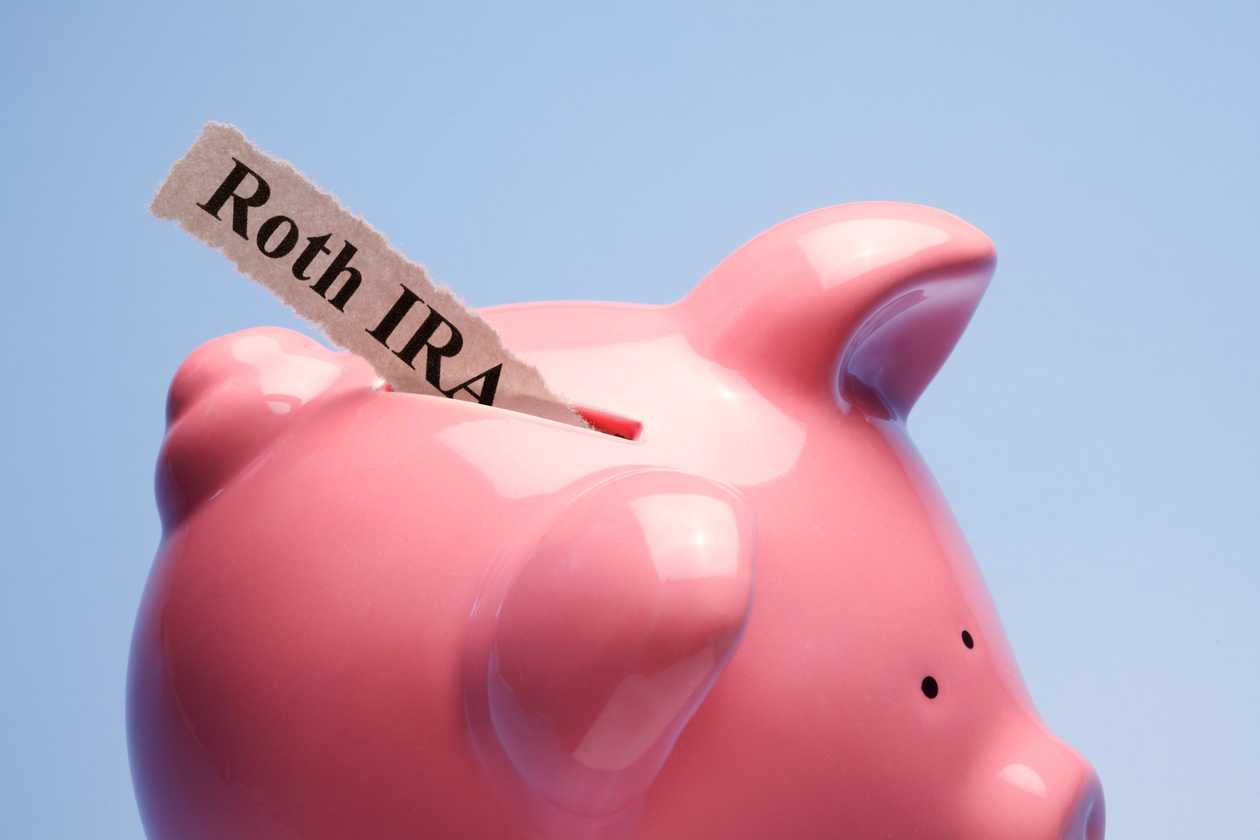- Get a 3% match on IRA contributions each year with Robinhood Gold (subscription fee applies), or 1% without.
- IRA transfers and 401(k) rollovers also get a 3% match through April 30 with Robinhood Gold, or 1% without.
- Choose a custom-built portfolio or create your own.
- Invest in stocks, ETFs and options.
Our evaluations and opinions are not influenced by our advertising relationships, but we may earn a commission from our partners’ links. This content is created independently from TIME’s editorial staff. Learn more about it.
The Roth IRA offers yet another way to save for retirement. Annual contribution limits of $7,000 will apply ($8,000 if you're 50 or older) across all IRA accounts in 2024, and income caps also limit who can contribute. That said, these accounts offer significant tax advantages for those who can use them as well as more flexibility than most other accounts for retirement.
Roth IRAs are funded with after-tax dollars. This means you get tax-free growth on your earnings and can take distributions without paying a dime, provided you are at least 59½ and the five-year holding period has passed or you qualify for one of the special exceptions, such as being a first-time homebuyer. You can also withdraw contributions (but not earnings) any time before retirement age without paying penalties or income taxes on those amounts.
Remember that you can open a 2023 IRA through April 15, 2024—April 17, 2024 for people in Maine and Massachusetts. (The 2023 contribution is $6,500—$7.500 for those 50+.)
But where should you open a Roth IRA? There are a range of online brokers, robo-advisors, and online financial advisors that offer different levels of management and fee structures.

Playbook
Playbook
Free trial: 7 days
Essential: $19/month (best for assets under $29K)
Plus: $59/month (best for assets over $29K)
TIME's Take
The best Roth IRA account varies since we are all at a different place in our journey to retirement. Beginning investors might want to choose a firm like Betterment or M1 Finance that offers pre-packaged investments or help creating a customized portfolio. Meanwhile, experienced investors should consider investing on their own through platforms like Charles Schwab or Fidelity.
To help you decide what works for you, we’ve summarized the best Roth IRAs for different types of investors below, along with the pros and cons of each.
Best Roth IRA accounts compared 2024
| Brokerage | Type | Best for | Minimum to open | Fees |
|---|---|---|---|---|
Online broker | No commission or management fees | $0 | $0 commission or management fees. Early withdrawal fees may apply. | |
Financial advisor | Help choosing and managing investors | $0 | Managed accounts accrue an annual fee that’s charged quarterly and based on your assets under management (AUM). The rates are 0.50% for up to $100,000 in AUM, 0.40% for the next $150,000, 0.30% for the next $150,000, and then 0.20% for AUM greater than $400,000. | |
Online broker | Low costs and flexibility | $500 | $4 monthly fee or 0.25% annual fee | |
Fidelity | Online broker | Hands-on investors | $0 | $0 commissions on U.S. stocks, ETFs, Fidelity mutual funds, and certain bond issues, and no account or advisory fees |
Charles Schwab | Online broker | No account minimums | $0 | $0 commissions on U.S. listed stocks, ETFs, Treasury bonds, real estate investment |
Betterment | Robo-advisor | Beginning investors | $0 | trusts, and select mutual funds and no account or advisory fees |
Our recommendations for the best Roth IRA accounts
Best for no fees: Robinhood
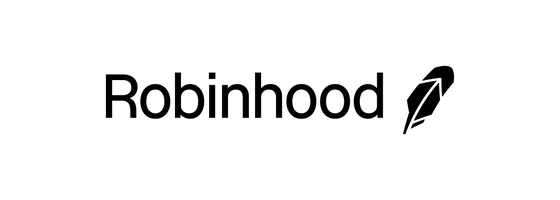
Robinhood IRA
Robinhood IRA
- $0 management fees
- $0 commission fees
- IRA Match Early Withdrawal Fee may apply
Robinhood may be known as a low-cost investing app for people who want to trade stocks and cryptocurrency without paying commissions or hidden fees, but this app also offers the option to open an IRA with a 1% match includedor 3% with Robinhood Gold. This match is available on every dollar you contribute (up to the annual contribution limits), transfer, or roll over to a Robinhood throughout the year. All that's required to keep the money and the growth that comes with it is maintaining the funds in the account for at least five years.
The Robinhood Roth IRA lets users invest in stocks and ETFs. Qualified traders also have the ability to execute options trades with no commissions or per-contract fees (other fees may apply). Users can opt to select from a one-time, custom-built portfolio offered on the platform or build their own. Note that, at the moment, qualified traders also have the ability to execute options trades with no commissions or per-contract fees (other fees may apply). Users can opt to select from a one-time, custom-built portfolio offered on the platform or build their own. Note that, at the moment, Robinhood only lets you open a Roth IRA account if you have a brokerage account set up with them first.
Pros:
Cons:
- Must also open a taxable brokerage account.
- Five-year holding period for matched funds.
Learn more on our review.
Best for hands-off investing: Empower

Empower
Empower
Empower is widely known for its free money management tools and effective, yet expensive, robo-advisor platform. Less is said about the company’s IRAs.
Empower offers two IRA accounts. There is a “Brokerage IRA,” catering to seasoned investors happy to do everything alone, and a “Premier IRA,” which is designed for retirement savers who could use some help picking and managing their investments.
The Premier IRA can be opened as a traditional or Roth IRA; doesn’t carry any setup, administrative, closure, or transaction fees; offers commission-free trading on over 140 mutual funds; and provides access to professional guidance from an investment advisor. Account holders have two options: invest on their own and ask for help from an expert whenever they need it, or, for an additional cost, let an experienced advisor manage everything on their behalf.
Having a professional take care of your retirement fund is reassuring. And the price of this help is competitive, with advisory services costing anywhere from 0.20% to 0.50% of AUM per year, depending on how much you’ve invested. That money can add up over the years, though, and may seem like a waste after the investments have been picked. Another drawback is choice: You can only invest in mutual funds.
Pros:
- Expert advice and investment services from an advisor.
- No minimum balance to get started.
- No setup, administrative, closure, or transaction fees.
- 140+ mutual funds to choose from.
Cons:
- Only mutual funds are available.
- Cost of having a managed account eats into returns.
Best for low cost and flexibiliity: M1 Finance
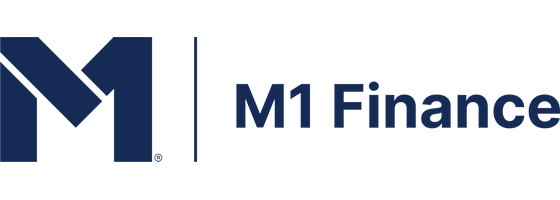
M1 Finance
M1 Finance
M1 Finance is an online broker that makes it easy to find investments that can help you meet your goals, although it does it differently than other firms. M1 Finance offers investment "pies"—investment portfolios that are tailored to investors at different stages of their journey. You can sign up for M1 Finance; open a Roth (or traditional or SEP) IRA; and choose from various pies that have the potential to suit your needs.
You can also build your own investment portfolio with the firm using stocks, ETFs, or even crypto. There are $0 commissions on stock and ETF purchases, and no account or advisory fees. Note, however, that M1 Finance charges a fee of up to $50 on accounts with $50 or less that haven’t been active for at least 90 days.
Pros:
- $0 commissions on stocks and ETF purchases, and no account or advisory fees.
- Choose from expert-created investment "pies" or build your own.
Cons:
- Inactivity fee.
- $500 minimum required to open an account.
Best for hands-on investors: Fidelity

Fidelity Investments Brokerage Account
Fidelity Investments Brokerage Account
$0 stock & ETF trades.
$0.65/contract options trades.
$0 Fidelity mutual funds.
3,300+ NTF funds.
Fidelity is a good option for hands-on investors who want to open a Roth IRA. The financial services giant offers plenty of investments to choose from, including its own popular mutual funds and low-expense index funds as well as fractional share trading with more than 7,000 U.S. stocks and ETFs. Fidelity lets individuals open an account with no minimums and no ongoing advisory fees. Ample tools and resources are available, along with a highly-rated mobile app that makes account access convenient on the go.
Investors who choose this account can select and manage their own investments. There is no account minimum to get started, and most online trades cost $0. Customer service is also available 24/7.
Expert Tip: If you want to invest with Fidelity but want some of the benefits of working with a financial advisor, the firm offers a Fidelity Go® Roth IRA. This account includes personalized advice and assistance to help you craft your portfolio, although a 0.35% annual advisory fee for balances over $25,000 applies.
Pros:
- $0 commissions on most trades and no account or advisory fees.
- No minimum to open an account.
- Access to robust planning tools and resources.
Cons:
- Requires you to choose your own investments.
- High broker-assisted trade fees.
Best for no account minimums: Charles Schwab

Charles Schwab
Charles Schwab
$0 stock & ETF trades.
$0.65/contract options trades.
$2.25/contract futures trades.
$0 OneSource mutual fund trades.
Charles Schwab is another online investment broker that offers access to a range of low-fee, no-load mutual funds; index funds; and ETFs. The company doesn't have a minimum balance requirement to get started, and you can pay $0 trade commissions and no account or advisory fees in most scenarios.
The Charles Schwab mobile app makes it easy to stay on top of your investments, and customers can use the app or the website to access a selection of retirement planning tools and resources.
Pros:
- $0 commissions on lots of investments and no account or advisory fees.
- No minimum to open an account.
- Access to retirement planning tools and resources.
- Seamless 10-minute application process.
Cons:
- Some mutual funds have high ongoing fees.
Best for beginning investors: Betterment
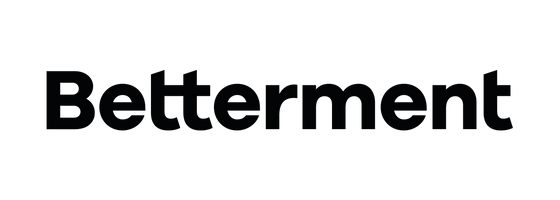
Betterment Invest
Betterment Invest
Trusts, and select mutual funds and no account or advisory fees
Betterment charges a $4 monthly fee or a 0.25% annual fee, but the company actually helps you build your retirement portfolio. This is because Betterment is a "robo-advisor"—a type of online financial advisor that uses data and algorithms to help you craft a portfolio that is tailored to your unique investing goals.
Essentially, Betterment asks you a range of questions to get a sense of your risk tolerance and timeline, then uses that information to select suitable investments. This makes the company a good option for beginning investors, but also for busy professionals who don't want to spend time researching investment options on their own.
Note that if you have an account balance with Betterment of more than $100,000, you can upgrade to a premium plan for .40% per year that includes phone and email access to a team of Betterment financial advisors.
Pros:
- No minimum to open an account.
- Have experts choose your investments for you.
- Advanced tax-savings tools.
- Automatic rebalancing.
Cons:
- Monthly or annual investment fees.
Methodology
In our hunt to find the best Roth IRAs, we compared dozens of different offerings. Factors we considered include account management and trading fees, minimum balances to open an account, investment options, and the ability to pay for personalized help. We also looked for brokerage firms and robo-advisors that offer an online app that helps consumers track their balances and progress on the go.
How to select the best Roth IRA brokerage account for you
Whether you're just starting to save for retirement or looking for a firm to help you manage a backdoor Roth IRA, finding the right account provider is essential. Here are the most important factors to compare before you decide.
- Account fees: While paying annual management fees can be worth it if you want help picking the investments in your Roth IRA, you should note that many robo-advisors and online brokerage firms don't charge recurring account management fees. If you decide to pay advisory fees for a Roth IRA, make sure you're getting ample services in exchange. These services can include help picking investments, long-term financial planning services, automatic rebalancing, tax loss harvesting, and more.
- Investment options: Take the time to understand what each firm lets you invest in, and look for companies that offer the most investment options possible. Ideally, you'll be able to invest your Roth IRA funds into a selection of stocks, bonds, index funds, mutual funds, ETFs, crypto, and more. Also, bear in mind that not all investments can be traded free of charge. Depending on the provider, some types of investments, such as U.S. stocks, might be commission free, whereas others, such as mutual funds, can be expensive to trade.
- Minimum starting balance: If you are starting a Roth IRA from scratch, you should pay close attention to minimum balance requirements. Many firms let you open a Roth IRA with a $0 starting balance; others require minimums of $500 or more.
- Resources and planning tools: Finally, consider whether your shortlisted options offer any financial planning tools or resources. Perks to look out for include retirement calculators, educational materials, and free investing webinars.
Still can't decide where to open a Roth IRA? In that case, a platform called WiserAdvisor may be worth checking out. The site's online tool asks you a range of questions before matching you with a top financial advisor who can help you create a detailed plan for retirement and beyond.
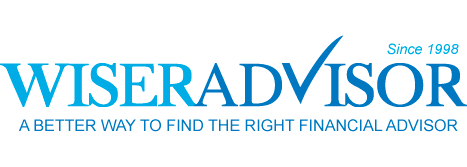
Find the right financial advisor with WiserAdvisor
Find the right financial advisor with WiserAdvisor
Frequently asked questions (FAQ)
How will my Roth IRA grow?
Investments in your Roth IRA account grow by increasing in value over time. Returns come from two main sources: interest or dividend payments and the price appreciation of the assets you hold.
Can I contribute to a Roth IRA if I have a 401(k) or traditional IRA account?
You can contribute to a Roth IRA in addition to your 401(k) or other retirement account. You can also contribute to a traditional IRA, although IRA contribution limits apply to all IRA accounts you have each year. In 2024, the most you can contribute to all your IRAs is $7,000 (or $8,000 if you're 50 or older).
What are the tax implications of a Roth IRA?
Roth IRA accounts are funded with after-tax dollars, so investors can withdraw their contributions at any time without paying taxes. Investors aged 59½ or older who have had the account for at least five years can also withdraw earnings from a Roth IRA without paying a penalty.
Who can contribute to a Roth IRA?
Income limits apply to Roth IRAs. To contribute, you must earn under a certain amount in income. In 2024, Roth IRA income limits to contribute the full amount are less than $146,000 for single tax filers and less than $230,000 for those married and filing jointly. To contribute a reduced amount, single filers and those married filing jointly must earn no more than $161,000 or $240,000, respectively. If you pay taxes on your contributions, you can also roll over larger amounts from a traditional IRA or traditional 401(k) into a Roth IRA, a process called a backdoor Roth IRA. Another option: You can roll over money from a designated Roth 401(k) into a Roth IRA without owing taxes. Consult a tax advisor before taking any of these steps to be sure you do them properly and know the complicated tax rules involved.
TIME Stamped is paid a flat fee for each successful referral to Herring RIA Sub, LLC ("Playbook") made through our links. TIME Stamped is not a Playbook client. There is no guarantee that clients will have similar experiences or success.
Empower Personal Wealth, LLC (“EPW”) compensates Time Stamped for new leads. Time Stamped is not an investment client of Empower Advisory Group, LLC.
The information presented here is created independently from the TIME editorial staff. To learn more, see our About page.

